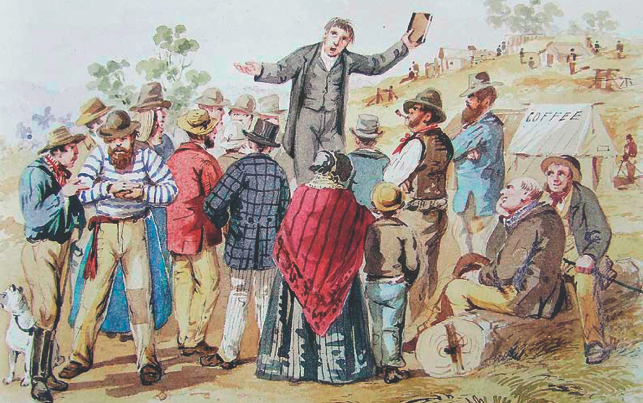The Culture of the Plain Folk.
Printed Page 352 Chapter Chronology
The Culture of the Plain Folk. The lives of most plain folk revolved around farms, family, a handful of neighbors, the local church, and perhaps a country store. Work occupied most hours, but plain folk still found time for pleasure. "Dancing they are all fond of," a visitor to North Carolina discovered, "especially when they can get a fiddle, or bagpipe." But the most popular pastimes of men and boys were fishing and hunting. A traveler in Mississippi recalled that his host sent "two of his sons, little fellows that looked almost too small to shoulder a gun," for food. "One went off towards the river and the other struck into the forest, and in a few hours we were feasting on delicious venison, trout and turtle."
Plain folk did not have much "book learning." Private academies charged fees that yeomen could not afford, and public schools were scarce. Although most people managed to pick up the "three R's," approximately one southern white man in five was illiterate in 1860, and the rate for white women was even higher. "People here prefer talking to reading," a Virginian remarked. Telling stories, reciting ballads, and singing hymns were important activities in yeoman culture.
Plain folk spent more hours in revival tents than in classrooms. Preachers spoke day and night to save souls. Baptists and Methodists adopted revivalism most readily and by midcentury had become the South's largest religious groups. By emphasizing free choice and individual worth, the plain folk's religion was hopeful and affirming. Hymns and spirituals provided guides to right and wrong — praising humility and steadfastness, condemning drunkenness and profanity. Above all, hymns spoke of the eventual release from worldly sorrows and the assurance of eternal salvation.
